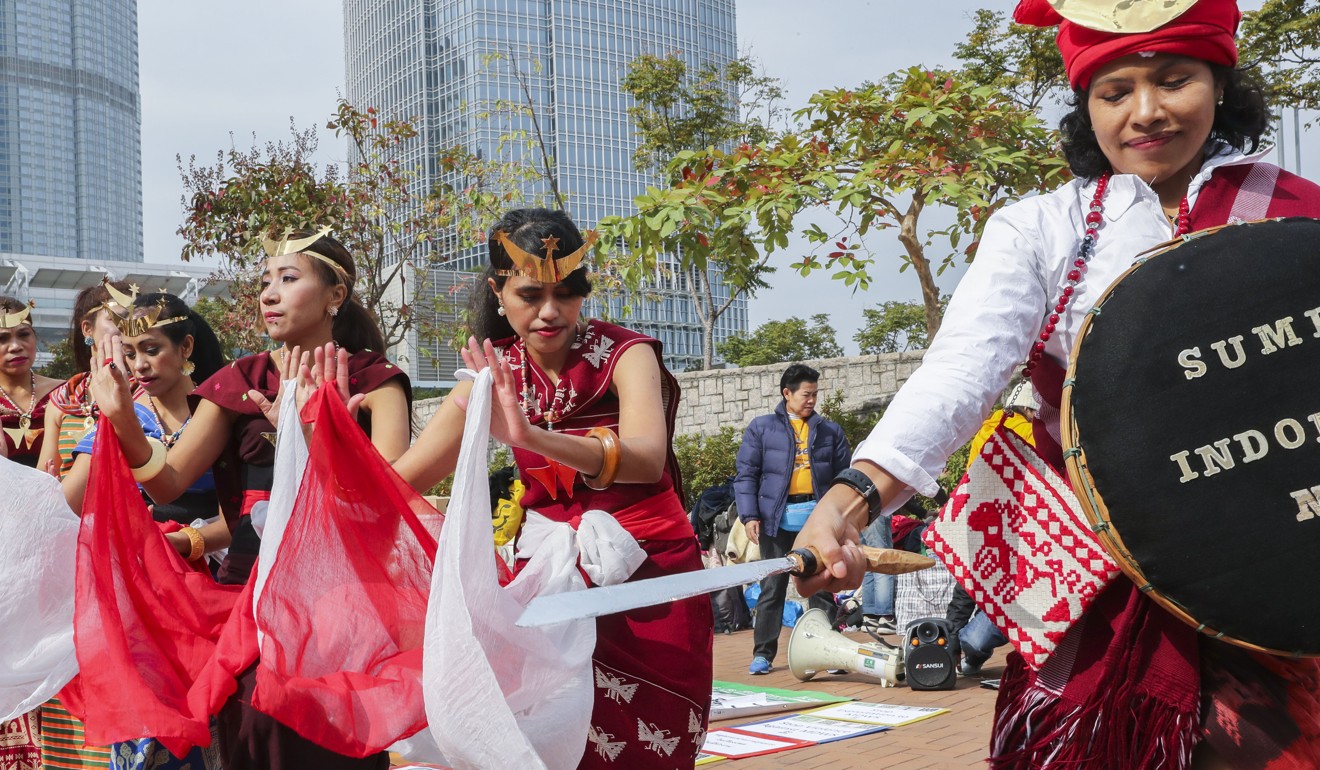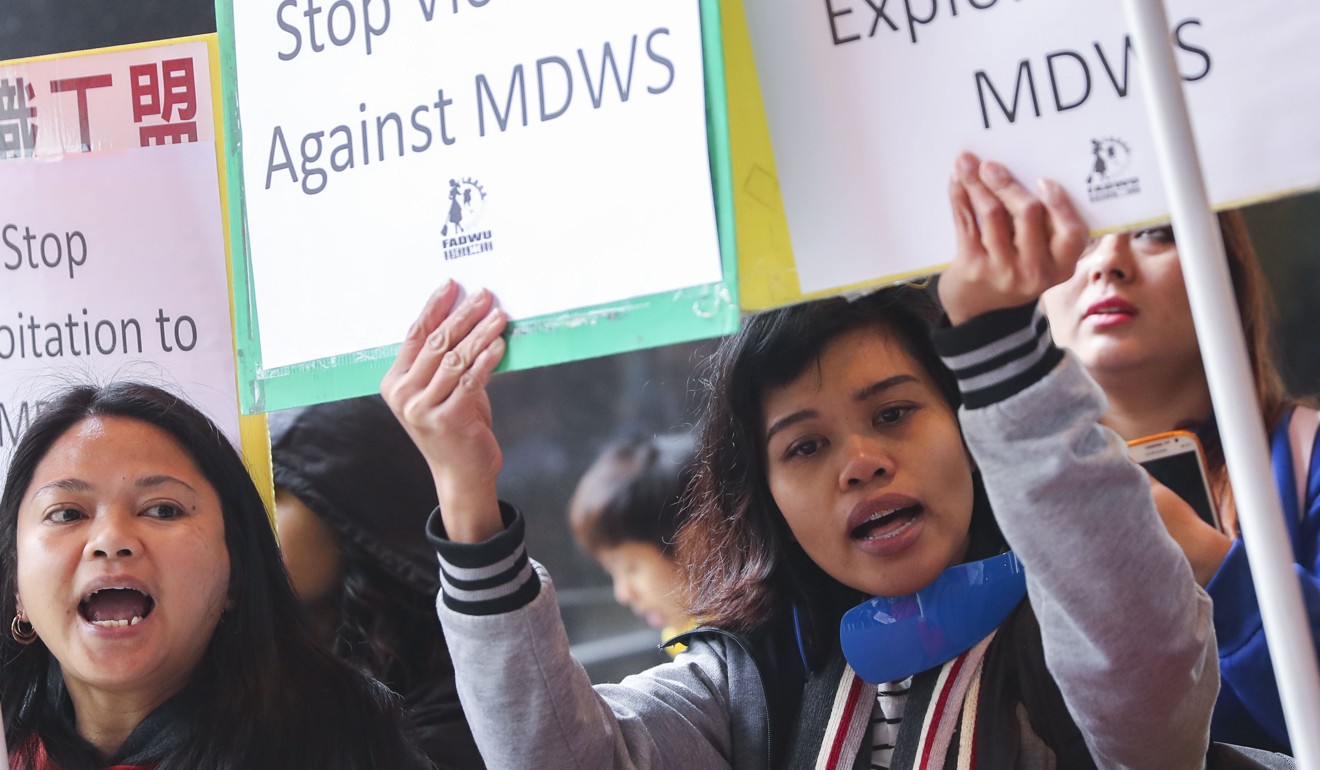
Hong Kong domestic helpers march to demand stronger legal protection against abuse
Workers and local supporters say recently introduced voluntary code of practice does not act as a deterrent to unscrupulous employment agencies
About 50 people marched in Hong Kong on Sunday, submitting petitions to several foreign consulates to protest against employment agencies overcharging migrant workers and demand better legal protection from abuse and exploitation.
“The problem is that the COP is not law. We need the Hong Kong government to make it law,” Federation of Asian Domestic Workers’ Unions chairwoman Phobsuk Gasing said.
The protest – to coincide with UN International Migrants Day, on Monday – began in Tsim Sha Tsui, near the Nepalese consulate. The marchers went via the Star Ferry to Edinburgh Place in Central. From there, they marched to the consulates of Thailand, the Philippines and India, before ending their march at government headquarters in Admiralty.
Agencies that break the COP can get warning letters, be fined, or lose their licence. But critics have derided the code as a “toothless tiger”, saying unscrupulous practices have continued since it came in.

Gasing said that overcharging by employment agencies was still “a big issue” that needed to be tackled, as some migrants were expected to pay up to HK$20,000 in fees, which could take up to seven months of wages to pay off before they could earn money for themselves.
Umi Sudarto, director of Kobumi, a group which supports domestic helpers in Hong Kong, said the protection of migrant workers was not solely the responsibility of the Hong Kong government, but also of the migrants’ respective governments.
“We are still working for low salaries, working long hours and being overcharged by employment agencies,” she said.
How Hong Kong failed Madagascar’s domestic helpers
“We are asking [all governments] to protect us, to give us [assurance], that our lives can be better. If our working conditions are not good, we cannot do good work for our employers.”
Lee said the government needed to establish a shelter for domestic helpers who report employer abuse and end the requirement for helpers to return to their home country if they do not get a new job within two weeks of filing an abuse complaint.

“Otherwise people will not report abuse and the government can just say that everything is fine,” he said.
A spokeswoman for the Labour Department said the government was “fully committed to protecting the rights of foreign domestic helpers”.
She added: “The government will spare no efforts to stamp out any abuse and exploitation of [helpers] and bring those responsible to justice.”
The UN established International Migrants Day in 2000. It marks the date the UN adopted the International Convention on the Protection of the Rights of All Migrant Workers and Members of Their Families, on December 18, 1990.

